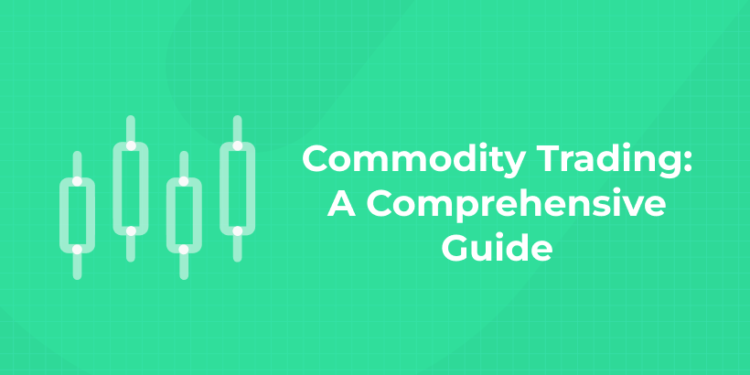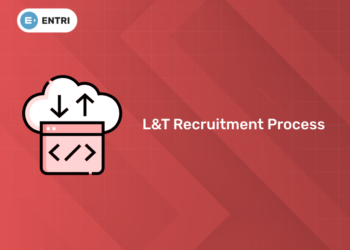Table of Contents
Commodity trading has become super popular among investors looking for diversification and to hedge against inflation. Trading physical commodities like gold, oil, natural gas and agricultural products allows you to tap into high demand markets. But to really understand commodity trading you need to know how it works, what commodities are available and how to trade successfully. This guide covers everything commodity trading so you can become an informed investor.
Types of Commodities
Commodities are broadly classified into two categories: hard commodities and soft commodities.
- Hard Commodities
People extract hard commodities, such as oil, natural gas, precious metals (gold, silver), and base metals (copper, aluminum), from natural resources. International commodity exchanges trade these commodities, which are heavily influenced by geo-political and economic conditions. - Soft Commodities
Soft commodities are agricultural products and livestock like wheat, corn, coffee, cocoa and sugar. Consumer markets demand these commodities, which are affected by weather, seasonality, and global trade policies.
In recent years commodities have expanded beyond traditional types to include new markets like carbon credits and renewable energy sources, as the world is moving towards sustainable growth.
How Commodity Trading Works
1: What is a stock?
Commodity trading involves buying and selling contracts based on the future value of a commodity. Here are the main components:
- Spot Market: Transactions are executed at current market prices for immediate delivery.
- Futures Market: Investors enter into contracts to buy or sell a commodity at a specified price on a future date. Futures is preferred for speculative trading as you can bet on price movements without owning the physical commodity.
Commodity exchanges like MCX (Multi Commodity Exchange of India) , NYMEX and CME Group facilitate these trades, provide standardized contracts and ensure smooth flow of transactions between buyers and sellers. Commodity brokers act as intermediaries and handle transactions on behalf of traders.
For more advanced guidance, Entri’s Stock Market Course teaches these concepts in depth, helping traders understand market dynamics and manage their investments effectively.
Learn Stock Marketing with Share Trading Expert! Explore Here!
Start Your Stock Market Journey Today!
Learn practical strategies, minimize risks, and grow your wealth confidently. Enroll now and take your first step toward financial success!
Know moreFactors Affecting Commodity Prices
Commodity prices are many faceted but dynamic.
- Supply and Demand
As demand goes up so does the price—especially if supply is limited. Seasonal factors affect certain commodities like agricultural products. - Geopolitical Events
Political instability or conflict in major commodity producing countries can reduce supply and prices will spike. Middle East politics heavily impact oil prices. - Currency Exchange Rates
Since commodities are global, exchange rates affect prices. A strong dollar makes commodities more expensive for international buyers and reduces demand. - Inflation and Economic Conditions
Commodity are an inflation hedge. When inflation goes up commodity prices go up as investors seek safe haven to preserve purchasing power. - Weather Conditions
Agricultural commodities are weather sensitive. Drought, excessive rain or natural disasters can impact crop yields and livestock and directly impact commodity prices.
Commodity Trading Strategies
A solid strategy is key to commodity trading. Here are some of the common ones:
- Trend Following
Trend following is analysing historical price patterns to make predictions. Traders look for trends that indicate up or down prices and take positions accordingly. - Arbitrage
Arbitrage is buying in one market and selling in another at a higher price. This is done in different geographical markets where price discrepancies arise due to demand, logistics or tariffs. - Spread Trading
This is buying and selling two related commodities at the same time to profit from the spread between them. For example buying crude oil and selling gasoline futures to profit from the spread between crude oil and refined gasoline prices. - Speculation
Speculators aim to profit by predicting price movements, taking high risk for high reward. This is for investors who can handle market volatility and react fast to changes. - Hedging
To protect against price movements, producers and consumers use hedging. Farmers for example sell wheat futures to lock in current prices and ensure stable income if prices change in the future.
Each strategy requires market understanding and risk tolerance. Entri’s Stock Market Course teaches students strategic thinking and market analysis to make informed trading decisions.
Commodity Trading Pros and Cons
Knowing the benefits and risks is key to making decisions.
Pros
- Inflation Hedge: Commodities are less affected by inflation so good during high inflation periods.
- Portfolio Diversification: Commodities add diversification to investment portfolios and reduces risk of stock and bond markets.
- High Returns: Commodity markets can give high returns especially for experienced traders using leverage.
Cons
- High Volatility: Commodities are more volatile than traditional assets and can have big price swings.
- Market Risks: Geopolitics, weather and economic conditions.
- Storage: Physical commodities need storage and transportation.
Considering these pros and cons, a comprehensive training course like Entri’s Stock Market Course can equip investors with skills to maximise gains while managing risks.
Start Your Stock Market Journey Today!
Learn practical strategies, minimize risks, and grow your wealth confidently. Enroll now and take your first step toward financial success!
Know moreHow to Get Started with Commodity Trading
To start commodity trading:
- Choose a Broker
Find a commodity broker like Zerodha, Grow, Upstox, Fyers . It should be registered with MCX . Brokers provide trading platforms and tools for analysis. - Open a Trading Account
Open an account with your broker, follow all the legal formalities. Some brokers may ask for an initial deposit. - Learn Market Dynamics
Understand how commodities are traded, technical analysis, market trends and strategy. Entri’s Stock Market Course covers market basics and teaches you how to trade successfully. - Create a Trading Plan
Define your trading goals, strategies and risk management. A trading plan helps you avoid impulsive decisions and stay focused on long term success. - Start Small and Diversify
Start with a small investment and diversify across multiple commodities to reduce risk. Don’t put all your money in one commodity or strategy. - Follow Market News
Stay updated with global news, economic trends and geopolitical events affecting commodities. Good market insights helps in trading decisions and to identify profitable opportunities.
Commodity trading requires continuous learning and adaptability. Its a game of patience and consistent studying.
Conclusion
Commodity trading has plenty of opportunities for investors who are willing to understand its complexities. From choosing the right commodities to creating trading strategies, this market needs a mix of knowledge, patience and adaptability. With the right approach commodity trading can diversify your portfolio and can be a hedge against inflation and currency fluctuations. But high volatility and risk factors means you have to trade carefully, use educational resources.
If you want to learn more Entri’s Stock Market Course has practical knowledge on commodity and stock market trading. Taught by industry experts the course covers trading strategies, risk management and market analysis. Visit Entri’s website to check out the Stock Market Course and get to know more about stock and commodity markets.
Whether you are a beginner or an experienced trader, learning and improving your trading skills will lead you to success in commodity trading. Make 1000 daily in the stock market
Start Your Stock Market Journey Today!
Learn practical strategies, minimize risks, and grow your wealth confidently. Enroll now and take your first step toward financial success!
Know moreFrequently Asked Questions
What is commodity trading, and how does it work?
Commodity trading involves buying and selling contracts on natural resources or agricultural products in markets. Traders can use spot or futures markets to speculate on price movements and achieve returns based on predictions.
What are the main types of commodities in trading?
Commodities are broadly classified into hard commodities (like metals and oil) and soft commodities (such as agricultural products). Each type has unique factors that influence its prices and market demand.
How can I make 1000 Rs daily in the stock market through commodity trading?
Making consistent profits in commodity trading requires effective strategies, risk management, and market understanding. Consider exploring trading techniques like trend-following and spread trading, as well as learning. Go through make 1000 Rs daily in the stock market .
What are the risks involved in commodity trading?
Commodity trading is highly volatile due to factors like weather, geopolitical tensions, and economic shifts. High leverage can amplify losses, so it’s essential to use risk management tools and strategies.
What factors influence commodity prices?
Commodity prices are affected by supply and demand, geopolitical events, currency exchange rates, economic conditions, and weather. Understanding these factors helps traders make better-informed decisions.
What are some common strategies in commodity trading?
Popular strategies include trend following, spread trading, arbitrage, speculation, and hedging. Each has different risk levels, so traders should choose one that aligns with their goals and experience.
Can beginners start with commodity trading?
Yes, beginners can start with commodity trading, but it’s crucial to learn the basics first. Educational resources like Entri’s Stock Market Course offer insights into commodity markets, trading strategies, and risk management to help beginners get started safely.
How does commodity trading differ from stock trading?
Commodity trading focuses on raw materials (like oil and metals), whereas stock trading involves shares of companies. Commodity markets are influenced by global events and weather, making them generally more volatile than stock markets.












